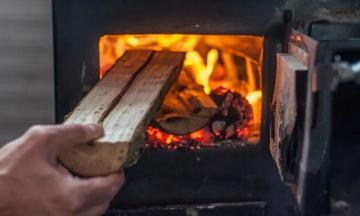
Gas vs. Wood Stoves: Which Is More Efficient?
Choosing between a gas and a wood stove may come down to which is more efficient. Defining efficiency is not so simple. Consider these factors when deciding on a stove for your home.
Defining Efficiency
Efficiency in stoves refers to how they convert fuel into heat. High-efficiency stoves produce more heat per unit of fuel, resulting in lower operating costs and lower environmental impact. To homeowners, efficiency also relates to cost.
Cost of Fuel, Installation, and Maintenance
Gas stoves are generally more expensive to install than wood stoves due to the need for a gas line. However, they tend to have lower fuel costs and require less maintenance. Wood stoves, on the other hand, have lower installation costs but higher fuel costs and require regular cleaning.
Environmental Impact of Gas vs. Wood
Gas stoves use non-renewable energy but produce far fewer emissions compared to wood stoves. Wood stoves use renewable energy, but the combustion process releases a much higher percentage of pollutants, including carcinogenic particulates, into the environment.
However, another consideration about the environmental impact of gas versus wood stoves is how you obtain the fuel and whether it is renewable. Trees can be planted, but once natural gas is burned, it’s gone forever. If you choose a wood stove, make sure it is EPA-certified. The EPA has issued requirements about wood stove emissions since 2015, and they were tightened up a bit in 2020.
Heat Efficiency: How Much Space Do You Want To Heat?
Your choice between a gas and wood stove also depends on the space you want to heat. Gas stove fireplaces provide consistent heat and are suitable for zone heating in smaller spaces or as supplemental heat sources. Wood stoves, however, produce a high amount of radiant heat, making them ideal for heating large spaces. Both stoves may have a blower to distribute heat.
Ways To Minimize Environmental Impact of Burning Wood
Gas stoves can’t reproduce the satisfying snap and crackle of a wood fire, but the emissions might concern you. Luckily, you can minimize emissions, even if you opt for a wood stove—using seasoned wood, maintaining your stove, and ventilating the stove can significantly reduce emissions. Moreover, modern wood stoves burn wood efficiently, reducing both fuel costs and environmental impact.
Gas versus wood stove efficiency depends on how you define efficiency: by cost, combustion efficiency or heating efficiency, and by environmental impact. After weighing these considerations, you can choose a stove that best fits your lifestyle and contributes to a warm, cozy home.

